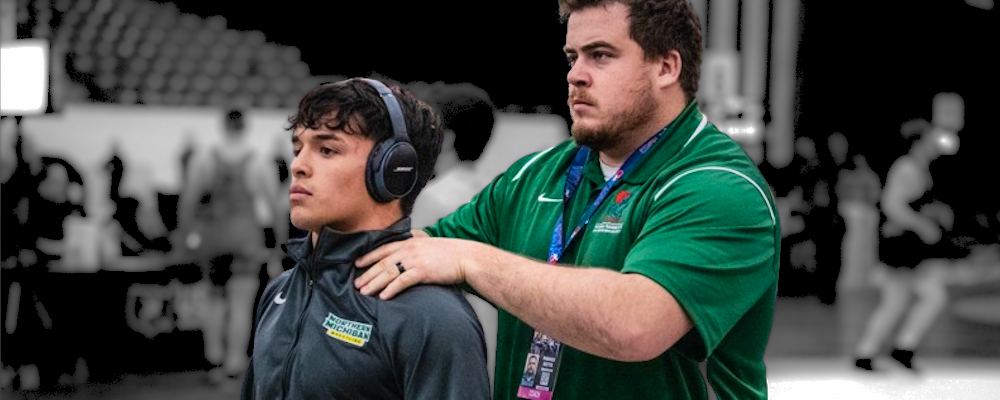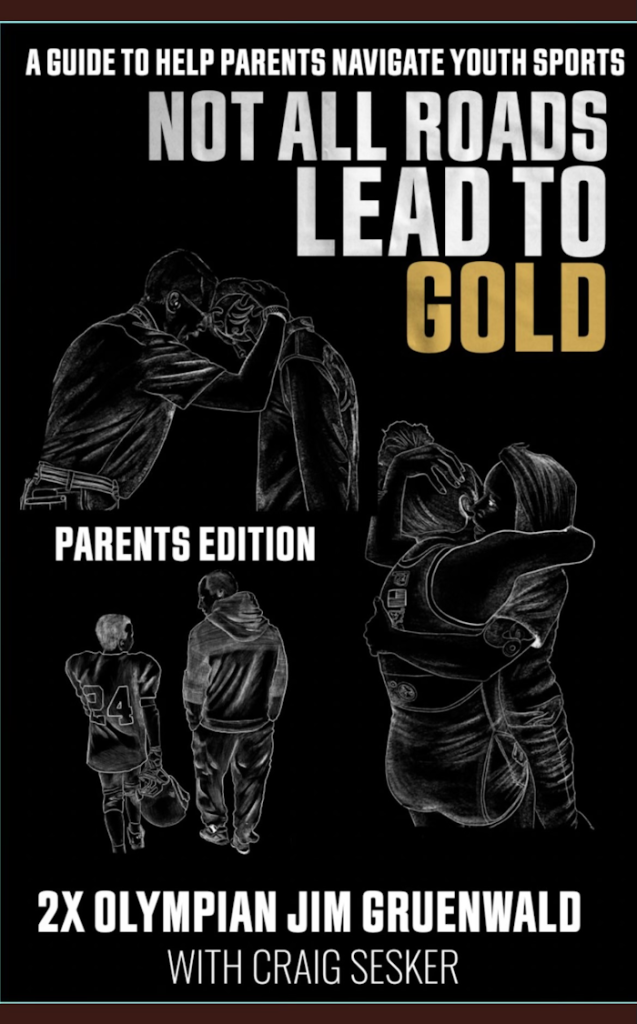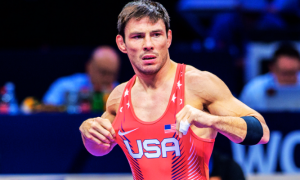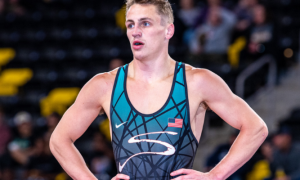He gets it. He understands. Jonathan Gurule (60 kg, NMU/NTS) is not exactly averse to talking about himself but it is easy to tell that it might not be his favorite pastime, either. He doesn’t actually come out and say it like that. Far too polite. Instead, you notice it in pauses. Some athletes rattle off answers with machine-gun quickness, eager to have the chance to be heard. That is preferable. You want them to open up and express themselves, to discuss this lifestyle of which they are part that is, even now, altogether quite unique. Meanwhile, other guys may have the same passions burning inside of them yet might not feel as comfortable with pulling back the curtain on their perspectives. This seems to be Gurule, though he is dutifully on-board for the mission at-hand.
Early in the conversation, Gurule takes a positive step by correcting the pronunciation of his surname. It is “Guh-du-lay”, not “Guh-rule” or however else people seem to fumble the phonetics. This is good. A degree of assertiveness. ‘Maybe he won’t be so closed-off providing some thoughts on wrestling and life in general‘, you think.
The preconception regarding Gurule being a quiet sort is not entirely his own doing. Northern Michigan University-National Training Site assistant coach Parker Betts had, in not so many words, basically warned that Gurule might come off a bit more reserved than several of the program’s other wrestlers. Attached to Betts’ miniature scouting report is simple observation. The current group at NMU includes a few boisterous characters; when you witness the dynamic between these maniacs at tournaments, Gurule is always right there with them — but is often found keeping his cool while still very much enjoying the sights and sounds of his teammates’ gesturing and yelling.
On the mat, however, the New Mexico native is, himself, heard loud and clear.
Gurule’s status as a Greco-Roman athlete has become elevated over the past two years, beginning with a spot on the U20 World Team in 2022 and continuing with stout performances on the Senior level that are difficult to ignore. Sharp and convicted are his movements, and complemented by equal parts instinct and elite training. In addition, Gurule is somewhat of an outlier when compared to most US prospects insofar that he demonstrates a preference and natural feel for scoring from top par terre, a position from which many young wrestlers shirk throughout the early stage of their careers. That Gurule has displayed comfort in this phase of the sport speaks to both his natural talent and desire to learn.
With winter at least inching towards conclusion, Gurule is staring at several important competitive matters. First on the agenda is the Last Chance Olympic Team Trials Qualifier in early-April where the objective is to win the tournament, a feat which would thereby secure bracket placement in said Olympic Trials. There are other potential avenues potentially worth exploring following that excursion, but all of them would be wiped away if Gurule goes on a tear and winds up representing the US in Paris come August. That is the goal, though he is not thinking so far ahead. One match at a time, one tournament at a time. Competitions to him represent opportunity, after all. To take even one of them for granted is not Gurule’s style.
But for now, it is not about what he has achieved or very well might in the near future. What is decidedly more interesting is how Gurule approaches the journey of an American Greco-Roman wrestler and engages the process. When it appears that this, albeit in layers, is the overarching topic of the discussion, Gurule becomes at ease. Answers to questions begin flowing. While he likely feels more at home revealing personality traits competitively and physically, Gurule does not shy away from sharing his story verbally. He is shrewd enough, certainly, to realize that this entire endeavor to pursue World and Olympic titles is rather uncommon, and therefore demands uncommon effort. Gurule indeed senses that a small part of his responsibility as a full-time National-level athlete is to spread awareness.
He gets it. He understands.
5PM Interview with Jonathan Gurule
5PM: At what age did you start wrestling and what got you interested in it?
Jonathan Gurule: I started wrestling when I was around six, seven-years-old. I actually was not really interested in it. I played soccer and football before that. One day, I ended up grabbing and throwing some kid, for whatever reason. I was having a fit. Then my dad said, “We’re going to put you in wrestling.” I was like, Okay. So, I started wrestling. I really didn’t care about it. It was just kind of something to do over the winter. I really did not get into wrestling until seventh grade. I was too small to play football and I was not playing soccer or anything like that. So I thought, If I’m only going to be wrestling, then I am going to focus on it. Even then, I kind of still did not care about it. It wasn’t like I was living and breathing wrestling. But I remember my freshman year, I was supposed to win state but lost first round to a guy who ended up placing second. After that, I was really into wrestling because… I don’t know. No one likes losing and I wanted to be better. I wanted to be the best, and I didn’t want to feel that feeling again. Then I went to Fargo and ended up doing well, and just fell in love with the sport from there.
5PM: What is New Mexico like when it comes to wrestling? It obviously is not one of the first states people think of for this sport.
JG: For age-group wrestling, there are a lot of clubs, especially in and around Albuquerque. I’m from a town 20 minutes away called Los Lunas. There are a lot of junior wrestling clubs, but once you get to high school it sort of fizzles out. You have a lot of athletes doing folkstyle but when it is time to do freestyle and Greco, they just stop. They just do folkstyle year-round. We have had some really good wrestlers. Real Woods is from New Mexico. Bo Nickal, believe it or not, was from New Mexico but I think he moved to Texas when he was in high school. I will say this: a lot of the kids from my hometown and the valley — Los Lunas, Peralta, and a lot of other places — they have heart. They are really tough kids. They just don’t have the technique or resources to get to that next level. I think New Mexico can be a great state for wrestling but there is not yet the commitment or resources to achieve that.
5PM: How exactly did you end your high school career in scholastic wrestling?
JG: I think that I had a great career, especially given where I came from. I won state and took second my senior year, so a two-time state finalist. In my eighth-grade year and my freshman year, I took third. During my sophomore year of high school, I stayed with Joe Betterman in Colorado and did only freestyle and Greco. It was not really a good fit for me. I didn’t do anything big, so I moved back home to New Mexico before my junior year. I did well at the preseason nationals, placing I think fifth or sixth. At Fargo, I All-American’ed my freshman year in Greco and went pretty deep in freestyle. My senior year I placed fourth in Greco. I didn’t win any of the regionals, like the Southwest Regional or anything like that. I had a good folkstyle career. I did not have any scholarships for college and didn’t want to go Division II. Nothing against doing that but personally it wasn’t for me.
5PM: Scholarships or not, you seemed to have an interest in veering towards Greco, anyway. What was the turning point for you to go in that direction?
JG: I think the turning point for me was when I took that gap year as a sophomore. I was just doing freestyle and Greco at Joe Betterman’s. That was all we did. We did not do folkstyle or any of that. So when I came back for my junior year, I was good at getting takedowns but I began to struggle scoring points on top (referee’s position). I could get out from bottom pretty easily. I had a good stand-up. But I think that affected my style during my junior and senior years. I just became a takedown machine.
What kept me in Greco was that it was the first style that I had any major success in. I mean, when I All-American’ed at Fargo as a freshman, that was huge for me — and it was huge for my state because not a lot of kids did well at that level, or accomplished much outside of the state. So I stuck with it and it was fun to do. It was just what I was good at. In Fargo, you usually had freestyle first and Greco second. My senior year, I got my butt whupped in freestyle and was like, I’m not going to let that happen again. It just motivated me to do even better in Greco. It helped me in my performance.
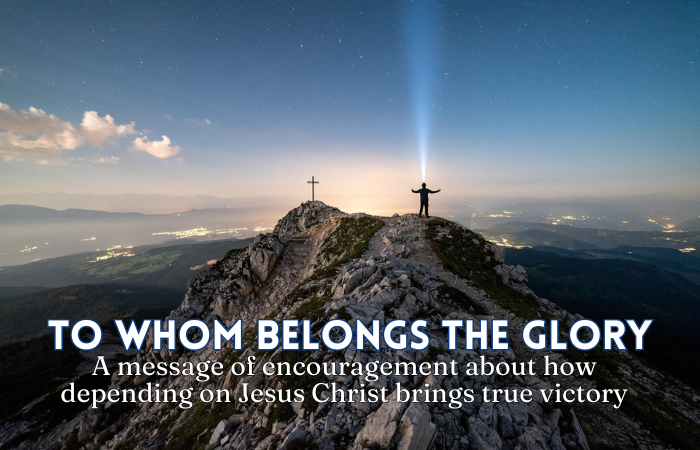
5PM: There is a concept which says that some wrestlers are simply much more cut out for one style over another. Other countries tend to identify athletes this way and encourage, if not force, them into particular disciplines. In our country, there are three styles from which to choose, but virtually every single wrestler here starts out in folkstyle. Looking back, do you think if you grew up in another system that you would have been pitched towards Greco earlier?
Jonathan Gurule: That’s a good question. When I was younger, when and if that selection process would have happened, I feel like I was a lot skinner. I remember my junior wrestling coach used to call me the “Wildcat” — which is kind of funny because now I am a Wildcat (which is the mascot name for sports teams at NMU — Ed.). I think he definitely would have pushed me towards freestyle. When I was younger, I really did not give much thought to either Greco or freestyle. I didn’t even know what any of that was. Just grab a leg and hold onto it, and see what happens? But it’s a good question. I don’t know. I’d guess that they would put me towards freestyle because they may have thought that I didn’t have what you need to push your legs and push a guy around. It’s a lot different.
5PM: How did you wind up at Northern Michigan?
JG: My senior year of high school, I lost in the state finals in overtime. I kind of wanted to give up at that point. I didn’t want to wrestle anymore. The whole COVID year threw me off and then I had to think about what I wanted to do for the next five years. After that loss, I took a break for a little bit. I didn’t want to go to Fargo. I didn’t want to have anything to do with wrestling. I wanted to do fighting, go into boxing, or just be done with the sport.
With Northern Michigan, I know that Andy (Bisek) had messaged me a few times because they had a Junior Trials before the state tournament. All of the tournaments were kind of different because of COVID. I would almost just blow him off, in a sense, or not really respond. And it was my last option. I did not want to go there.
I talked to my coach and ended up going to Fargo, and doing really well there. Even after that, I still didn’t know what I wanted to do. I would talk with my parents about what my options were. I think a week before school started at NMU, I began going back-and-forth with Andy and we were going over plans. I was also trying to get scholarships from Division I universities, especially in the Big 10. I was emailing these coaches, just trying to reach out. My club coach had wrestled at Ohio State and he knew a few people. I was just talking with them but I was never really offered a lot of money for scholarships. That was kind of a big deciding factor because I didn’t want to have, like, $100,000 in debt.
I ended up just talking to my mom and promised her that I would at least try one year at a university and if I didn’t like it, I would just drop out or transfer back home. Northern at least seemed like a fun place to try out. It was my last choice, to be honest with you. It was my last choice. I was a week late for school. I remember when I got there that Andy picked me up in his car and took me to the dorm to meet some of the guys. I was in the shower thinking, Yeah, I’m definitely going to transfer after this semester. I’m just going to be done with it. And then I ended up falling back in love with the sport. I met a bunch of really great, cool people, and was just having a great time. Then I obviously made the World Team the next semester, so it is kind of funny how it all works out. But yeah, I decided to stay for the next four years.
5PM: Granted you had time with Joe Betterman, but now that you are a fully-indoctrinated Greco-Roman athlete from NMU, have you become increasingly aware of that program’s legacy and its importance to the US?
JG: Honestly, it has crept up on me. When I first got here, I didn’t care. I didn’t care at all. I barely knew who some of the alumni were before me. I was kind of in my own little world.
But towards the end of my freshman year, Alston Nutter brought out this purple shirt for me that, allegedly, has been around since the start of the program. He was just telling me about it. Travis Rice had given it to him. Now I don’t know who gave it to Travis Rice, but supposedly it is Nate Engel’s purple shirt from that era. It is a purple v-neck with lines across it in different colors. It is the ugliest shirt ever — but it stands for something else. That got me thinking about how there have been all of these other great wrestlers here. You have had all of these guys from Northern Michigan in the past, alumni who have made Olympic Teams, World Teams, and have done all of these great things. It puts it all into perspective. You also had all of these other programs at Northern Michigan. You had weightlifting, Olympic skiing, and boxing, but wrestling has continued to be a sport that is offered here.
I have been thinking about this a lot lately — what would be the most important thing to do to preserve the culture? To preserve what we’ve got going on here for future classes and future athletes to keep going? It is a hard question to think about because the former athletes who have been to this university have done great things. It is almost expected. You go to Northern Michigan University, you have all these good guys who you are wrestling, and if you put in the work and are 100% committed, results are going to come. You might not make a World or Olympic Team while you’re there, but it’s going to happen and you will become one of the top guys in the country.
5PM: NMU Greco right now seems to have a deep sense of unity. Every program wants this but not too many actually have it. NMU athletes at events are deeply supportive of one another and they are also very loud. They’re basically maniacs even when they’re not wrestling.
JG: (Laughs) Yeah.
5PM: I’d have to think that some of this is because it carries over from the practice room. Let us in on some of this, the culture of your program at the moment. Because, a lot of people in the sport have noticed it.
JG: I’m getting excited just talking about this. I used to think it was normal that every team would just eat breakfast, lunch, and dinner with each other and would be hanging out with each other every single day — but it’s not. We probably spend on average about eight hours with each other if you include eating together, practice, and all of that stuff. We’re pretty close.
We’re in Marquette. It’s like an island, and sometimes it feels as though we’re not part of the university. Sometimes, we feel like it’s Northern Michigan versus the world. In the practice room, it is very competitive. We’re going to try to rip each others’ heads off. Even if we’re just going on a run, we have guys who will start sprinting to try and win that run, just something so simple. We are able to do stuff like that but just switch it off when we’re at the dinner table. We really care about each other.
For example, I don’t have a car. A lot of guys don’t have cars. But if I need to go to the airport, I can just call someone up. I can call Payton (Jacobson), I can call one of the other wrestlers on the team, and they will just take me there without asking for money or anything like that. The guys here, the culture, is truly like a family. A lot of the guys just care for one another. We are here to make World Teams and Olympic Teams, and win gold medals. In order to do that, we need a culture of guys who are showing up to practice every day, staying after practice to work on things or to talk to the coaches, asking questions, and really trying to learn.
And as you were saying, at tournaments a lot of our guys are loud. It is like we feel that it is us versus everybody. Our cards are on the table and we believe in every single one of our guys. We have each others’ backs. That is what it comes down to. It’s a brotherhood.
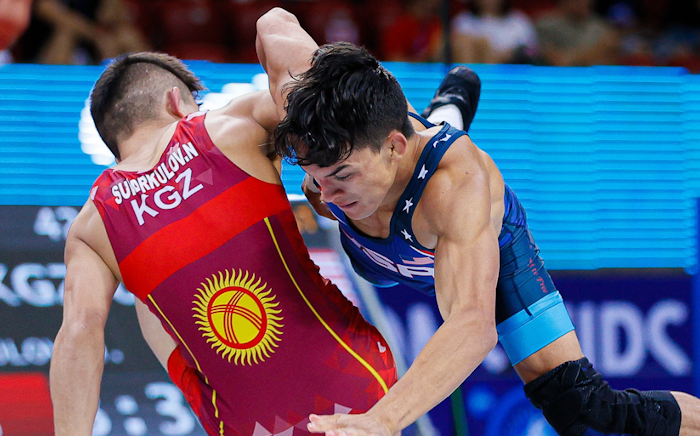
5PM: You went ahead and made that U20 World Team in ’22. With that not only comes the opportunity to represent the US, it is also a chance to experience what the foreigners bring at a high level. How did you look at the Junior Worlds before the tournament, and how did you look at it after it was over?
Jonathan Gurule: Looking at the Junior tournament beforehand, it was almost surreal in a sense because the semester prior, I was thinking about leaving the program. I was thinking about quitting wrestling. There were so many things going on in my life. You see these videos on Instagram or on social media and they say, You can do whatever you put your mind to, and all that stuff. And you believe it, but there’s also a part of you that doubts it. Like, Really? What does it even look like to put your mind to something and achieve something so great? But you think about it and it’s, Wow, okay, really… I can do whatever I put my mind to, no matter what it is. It was eye-opening.
And it was awesome to be on that team with two of my Northern Michigan teammates. I had my training partner Max (Black) and Payton Jacobson. These guys inspired me and motivated me to work as hard as I can, to bust my butt to make that Team. A couple of months before the World Championships, when Ivan (Ivanov) was there, everything was going well but then we put up the Suples Arena and I was wrestling Dalton Roberts and dislocated my kneecap. It was so bad. I was embarrassed, although you shouldn’t be. But you get an injury like that in front of people and you feel weak, ashamed… I was feeling all of these emotions. They put my knee back in place. I went to the trainer — great guy — but I was crying because I had been working so hard to make it to this moment, to make the World Team and have a chance to win a World Championship, and this is bad. It is all about to be taken away and I’m going to have to give it to the next guy. I called Andy Bisek after practice and told him what happened. He gave me some great advice. He urged me to focus only on what I could control. So then it was like, Okay, I’m going to go to practice tomorrow, do my rehab, do everything that I can, and focus on what I can control.
But the experience before that was just awesome. When we got there (to the World Championships), we actually went up a week early because Ivan had this sort of ranch in the middle of Bulgaria. On the way up there, everyone on the bus thought that we were going to get murdered (laughs). We didn’t know what was happening because we’re traveling to this ranch and it is just in the middle of nowhere. We’re taking all of these weird turns, we don’t have any (cell) service, and we don’t know what’s about to happen. But then we get there and it’s nice. It had a wrestling mat, it was outside, they had a restaurant there for us and they gave us beds and all of that stuff. We trained there for a week leading up to the World Championships and then left for the tournament. That was pretty cool.
One of the big things when we finally got there was, like I said, it was a little surreal. I was warming up for my match — and it’s two hours after weigh-ins, so you refuel and all that — and it was like, I’m here. I was telling myself to relax. It’s just like any other tournament. Chill. After my match, I really didn’t know how to feel. When I lost, I sat down on the floor behind the bleachers and it didn’t really hit me. I almost cared. I did care, but I didn’t know how to feel about it. I had lost but didn’t want to feel that feeling again, when you have lost and now have to rely on someone else to keep you in the tournament. It was almost embarrassing. I felt embarrassed and ashamed. It sucked. No one likes to lose. I had to take a step back, reflect on the moment, and be grateful to be there competing with the guys who were the best in their own countries. And to be there with my teammates.
It was a great trip. I obviously didn’t get the results that I wanted, but I think being grateful for the moment and the experience, and to have learned, is even better.
5PM: Parker said later that you, Max, and Payton having been in that tournament and gotten a taste of that level of competition seemed to drive you guys into a different gear during practices.
Jonathan Gurule: It did. You got a taste of it and you wanted more. You can’t get enough. You realize how big the picture is and what’s out there. It’s different because Payton is at a higher weight. Me wrestling Payton? No one’s winning that, because he’s at a higher weight class. But Max and I wrestling? It’s great having Max being that we’re at similar weights. He’s a really competitive guy, I’m really competitive, and we have been able to build each other up. It is a competitiveness that is not toxic, but healthy. Like I was saying, when we’re going on these runs, we are all trying to win each run and full-on sprinting, and everyone is giving 110% to these workouts. We are all trying to beat each other. Iron sharpens iron, and it ends up with everyone in the room getting better. It inspires the younger athletes to learn, ask questions, and to give everything they have whether it is running or a light workout, or going live.
5PM: Last season began your second year at NMU and you performed well at the US Open and then essentially placed fourth in the Senior Trials. You defeated Phillip Moomey twice, and Moomey, who is very skilled, had defeated Max Black the year prior. But in the U23 Trials finals last spring, Moomey was able to get a pair of wins from you. For someone in his second full year of Greco, I thought 2023 was a really strong season for you. But what did you think about how it went?
JG: I respect Moomey. He made some adjustments and ended up beating me twice. He had stopped the main things that I had beat him with the two times before. It wasn’t like I was disregarding him. I just think that he had a better day than me, to be completely honest with you. I don’t want to use any excuses or anything like that.
When I think of the past season, I don’t know what to say. There are some things that worked for me on the Junior level and there were some losses on the Senior level that highlighted what I was doing wrong. There are just some things that worked on the Junior level that on the Senior level, the highest level, did not work anymore. And I was so used to those things working, but then they didn’t and it became about trying to figure out what isn’t clicking. I would say that for this season, too, that I didn’t have a good showing at the US Open in December. I’m trying to work on it. I’m working on it with my coaches in the room. I’m trying to get more takedowns and become more comfortable scoring in different positions. Because before that, even last year at the US Open, I didn’t get a lot of takedowns. My bread and butter is on top. I think that’s okay. That’s good; but there is a time when you do need to get takedowns and you do need to be able to score, and you do need to get to different positions and be comfortable in them so that you can make things happen.
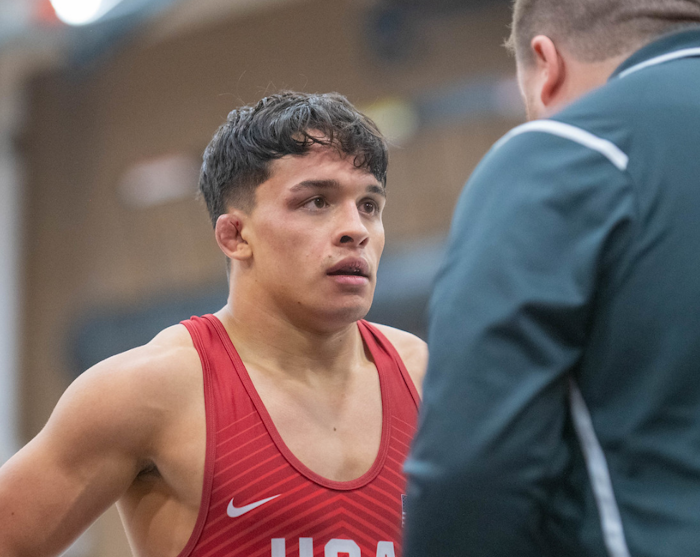
This year with Andy, we have been doing a lot of that, wrestling in different positions. I was talking to him after this previous tournament. We watched my matches and I got his feedback. I had let him know my thought process during those matches and we narrowed it down to what it was that I needed to improve. It started on the base level, to score more in practice and to just let go of that ego and fear of not wanting to lose. That ego of, Oh, if I get scored on, everyone is going to remember this, but it’s not the truth because, in practice, who cares? It just starts there. I think a lot of that will eventually show in the way that I compete at tournaments and with just relaxing more, and not being so nervous. Not putting so much pressure on these events and being like, If this doesn’t happen, it’s the end of the world. Instead, just having fun with it. Obviously, you’re trying to win; but just focus on what you can control — your thoughts, your actions, your habits, and just enjoying the process. That’s what I have learned.
I’ll be honest, even after the US Open last year — and the Senior Trials, the U23’s and this recent tournament — it took me a while to learn that. I am kind of hard-headed. I didn’t learn right away, but I’m sure that’s what it was. Now I am working on that and just focusing on what I can control.
5PM: This winter, several from your room have traveled and competed overseas. You haven’t. How did, or did not, that option fit into your training plan during this time of the season?
JG: I did consider it. I had options that were just there, a couple of tournaments overseas that a couple of the guys went to. I felt like for me that this wasn’t the right moment to do that. I felt that it was time to take a step back and relax. I felt like I would get too anxious and get this anxiety about competing and going to practice, and all this other stuff. The one thing I realized is that, yes, wrestling is important, but it’s not the whole entire world. If I don’t perform well at a tournament, my family is still going to love me, my friends are still going to love me. The world is not going to end, I’m not going to be seen as a failure or whatever. The reason why I wanted to stay back was to work on more mental stuff. To work on my mind and relax a little bit. That’s the best way I can explain it. There is a lot of good competition overseas, but during this moment it just wasn’t right for me.
5PM: We are approaching the spring selection process. I assume that you are going to Virginia for the Last Chance Olympic Trials Qualifier…
JG: Yup. Yes.
5PM: Virginia can lead to State College, where the Trials are, and State College can lead to Paris, where the Olympics will be held. Three years ago, your high school career ended and you were not exactly sure if you would even continue wrestling. Fast forward to now, and it seems to have been quite a productive journey for you thus far. What have you learned about yourself during this time?
Jonathan Gurule: What I have learned is that there is not a secret to success. You have to have good habits. You have to be consistent and work hard. Obviously, doing that will put you in the right direction for success, whatever it is, but it won’t guarantee success. It will just put the odds in your favor. I think what I have learned the most, and it’s easier said than done, is just relaxing. Focusing on what you can control, your thoughts, and your actions, and how you decide to react to certain situations. Mainly, it has also taught me that if you work, and you work hard, you also need to focus on the right things.
What I mean by that is you can be the hardest worker, I don’t think it is going to guarantee you success if you aren’t also working hard on your diet or your sleep habits. I think just working hard in the right direction and focusing on the things that are going to increase your odds for success. Wrestling is a tough sport. It is hard. It isn’t easy. There are going to be days when you do not want to go to practice. It is putting up with it and having the discipline to go and then bringing a positive attitude with you into the room. To give it your best. To give it everything you’ve got, and to learn and ask questions. These are some of the things that I’ll take with me from the sport. If you have a goal, if you have a dream, and you put your mind into it, if you believe in yourself and work really hard every single day to get better while trying to achieve that goal — you’ll achieve it, no matter what it is.

Listen to “5PM57: Kamal Bey and David Stepanyan” on Spreaker.
Listen to “5PM56: Rich Carlson and Spencer Woods” on Spreaker.
SUBSCRIBE TO THE FIVE POINT MOVE PODCAST
iTunes | Stitcher | Spreaker | Google Play Music


